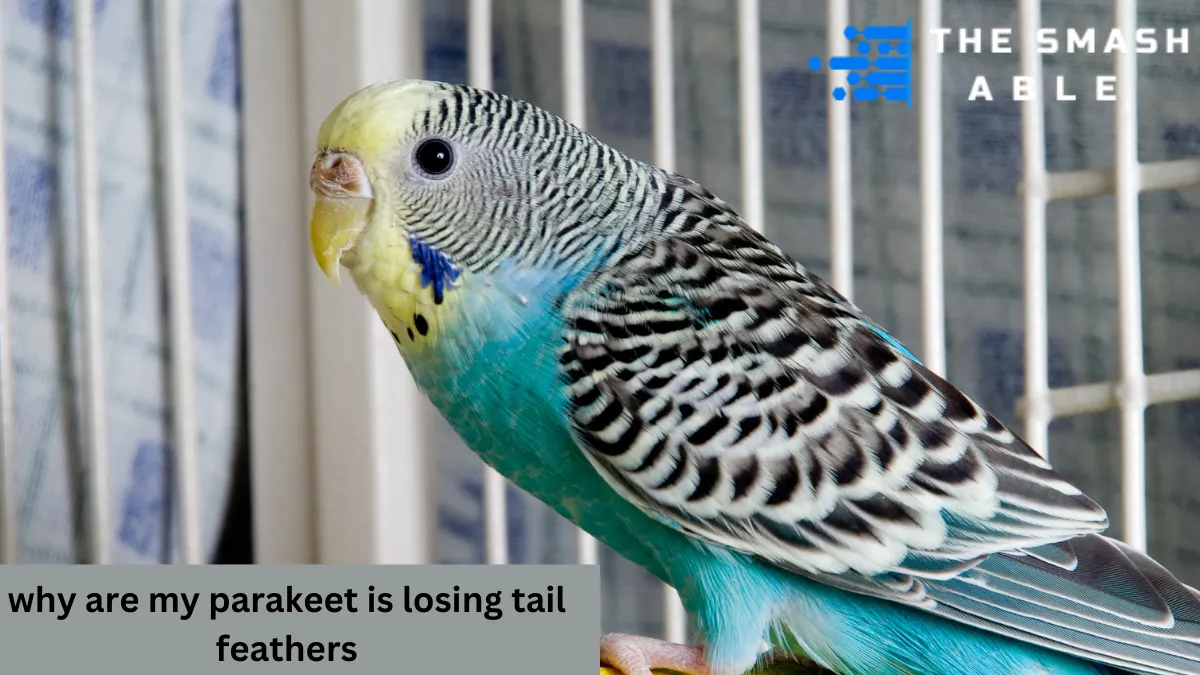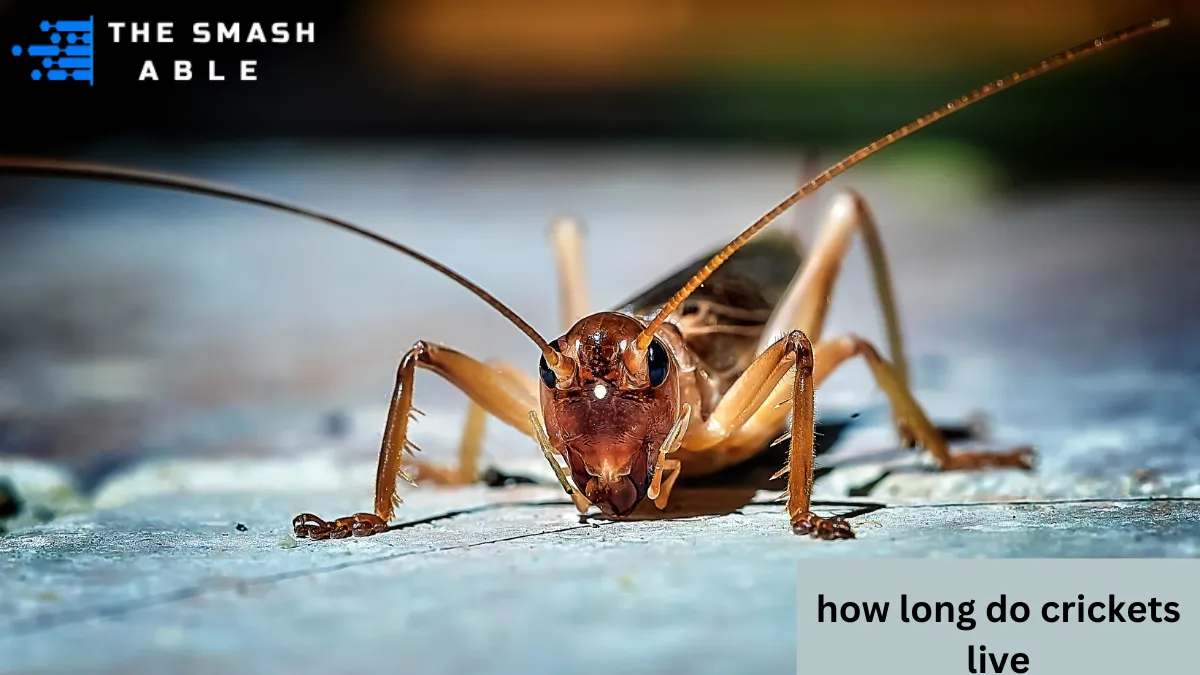Table of Contents
Why are my parakeet is losing tail feathers? It’s a question many bird owners wonder about. If you’ve noticed your parakeet’s tail feathers are falling out, you may feel concerned and want to understand why. In this article, we’ll explore the common reasons behind tail feather loss in parakeets and helpful ways to support your bird in regrowing healthy feathers. Let’s dive into understanding what might be happening to your pet.
Common Reasons Why Are My Parakeet Is Losing Tail Feathers
If you’ve noticed a change in your parakeet’s feathers, several common causes could be at play. Understanding these reasons can help you address the root of the problem and provide the best care for your feathered friend.
Molting Cycle
One natural reason of Why are my parakeet is losing tail feathers? could simply be molting. Molting is a regular process where parakeets shed old feathers to make way for new ones. During molting, it’s normal for parakeets to lose tail feathers. This cycle happens once or twice a year and usually doesn’t require special care.
Stress Factors
Stress can impact a parakeet’s feather health. Significant changes, like moving to a new home, sudden noises, or new pets, can cause stress. When parakeets are stressed, they may start losing feathers as a reaction to the anxiety.
Poor Nutrition
A balanced diet is crucial for feather growth. Feather health can suffer if a parakeet lacks essential nutrients like vitamins and minerals. Feeding your bird various seeds, fruits, and vegetables helps maintain feather strength and beauty.
Mites or Other Parasites
Parasites like mites can cause discomfort and itching, leading a parakeet to pull out its feathers. Mites often live on the skin and can be transmitted by coming into contact with other birds or contaminated environments. Look for signs like redness or constant scratching.
Also Read: Why Are My Parakeet Is losing Tail Feathers Falling Out?
Signs to Watch for When Tail Feathers Start Falling Out
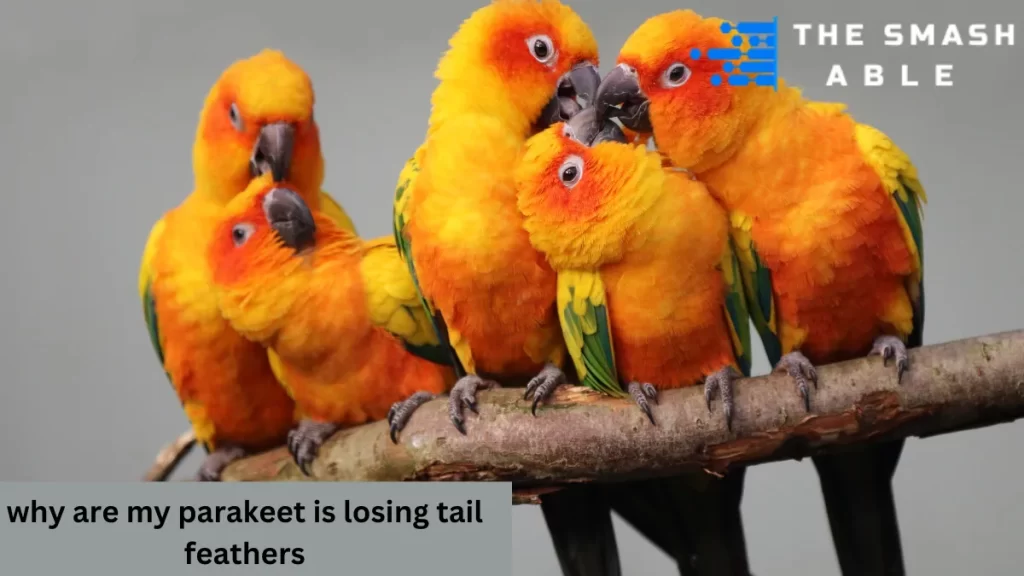
Knowing what to look for can help you understand if feather loss is average or a sign of a problem. Here are some signs to help identify the cause of your parakeet’s feather loss.
Feather Patches and Bare Spots
Is your parakeet losing more than just tail feathers? Bare patches or missing feathers in other areas might signal stress or health issues, especially if they don’t regrow quickly.
Scratching and Itching
If your parakeet is scratching itself often or seems itchy, this could mean parasites or skin irritation. Mites are common, and your vet can recommend safe treatments to help your parakeet feel comfortable again.
Loss of Appetite and Energy
Sometimes, feather loss happens alongside other symptoms, like a loss of appetite or energy. If your parakeet seems tired or less active, it might have a health issue affecting its energy and feather quality.
Also Read: how long for poly bushings to break in – But How
How to Support Your Parakeet’s Feather Health
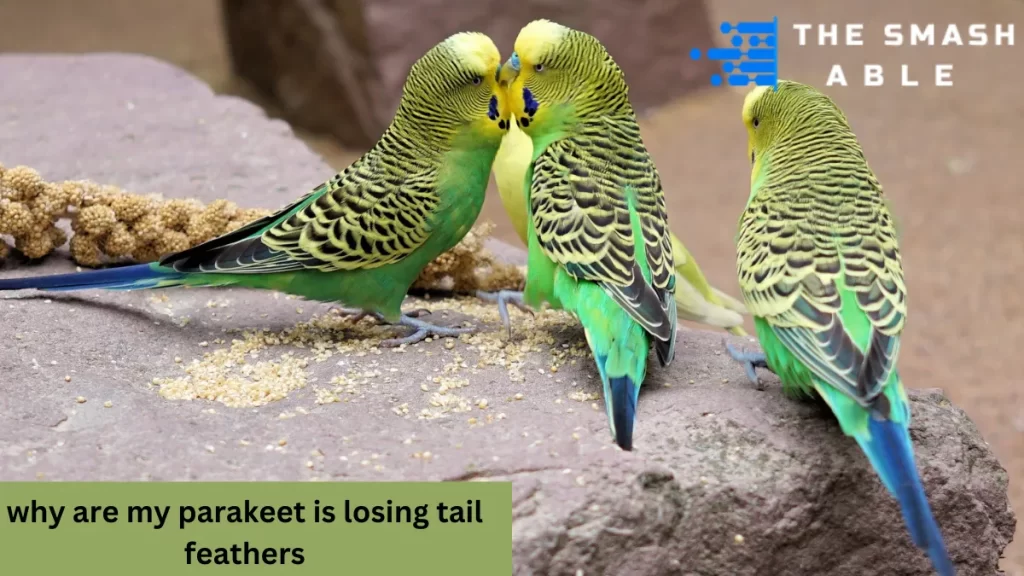
Why are my parakeet is losing tail feathers? Helping your parakeet grow back strong feathers can improve its overall well-being. Here are some steps to ensure your bird’s feathers grow back healthy and strong.
Provide a Balanced Diet
Feeding your parakeet a healthy diet can make a big difference. Offer a mix of seeds, leafy greens, fruits, and pellets. Foods rich in vitamins A, D, and E and minerals like calcium are great for feather health.
Reduce Stress in Their Environment
Keeping your parakeet’s environment calm and consistent can help reduce stress. Avoid loud noises and sudden changes, and introduce new pets or people gradually to ensure your parakeet feels safe.
Regular Vet Checkups
Regular checkups can catch problems early, especially if your parakeet’s feather loss is unusual. A vet can help identify issues like mites or infections and recommend treatments to keep your parakeet healthy.
Keep Their Living Space Clean
A clean cage reduces the risk of mites and bacteria that could lead to feather issues. Clean your parakeet’s cage weekly, and ensure it’s free of dust and waste to provide a healthy space for your bird.
Also Read: Curious How Long Crickets Live? Find Out the Shocking Truth!
Practical Tips to Prevent Feather Loss in Parakeets
Care TipsDetails
| Care Tips | Details |
|---|---|
| Ensure a Varied Diet | Provide a mix of seeds, grit, fresh water, leafy greens (like spinach), carrots, broccoli, branches from native trees (with flowers if possible), fruits, bird food pellets, mineral blocks, and “egg and biscuit” mixes for extra nutrients. |
| Supervised Cage-Free Time | Allow your parakeet some supervised time outside the cage daily, making sure fans and stoves are off and windows are closed for safety. |
| Provide Comfort When Alone | If the bird is alone during the day, leave a radio or TV on for comfort. |
| Maintain Natural Day-Night Cycle | Cover the cage at sunset and place it in a quiet room to ensure proper rest. |
| Avoid Overcrowding | For multiple birds, ensure each has its own space and add bushy branches (such as bottlebrush) for hiding spots to reduce stress. |
| Keep the Cage Clean | Clean the cage daily to prevent feather loss triggers like self-plucking from feathers on the floor. |
| Encourage Preening | Offer a birdbath or lightly mist the bird with water to promote healthy feather care. |
| Reduce Stress | Protect your bird from loud noises, extreme temperatures, and other animals like cats, dogs, and wild birds. |
| Consider Last Resort Options | If feather loss persists, try a plastic collar, introduce a companion bird, or place your parakeet in an aviary. Consult a vet for parasites or infections if needed. |
When to See a Vet for Parakeet Feather Loss
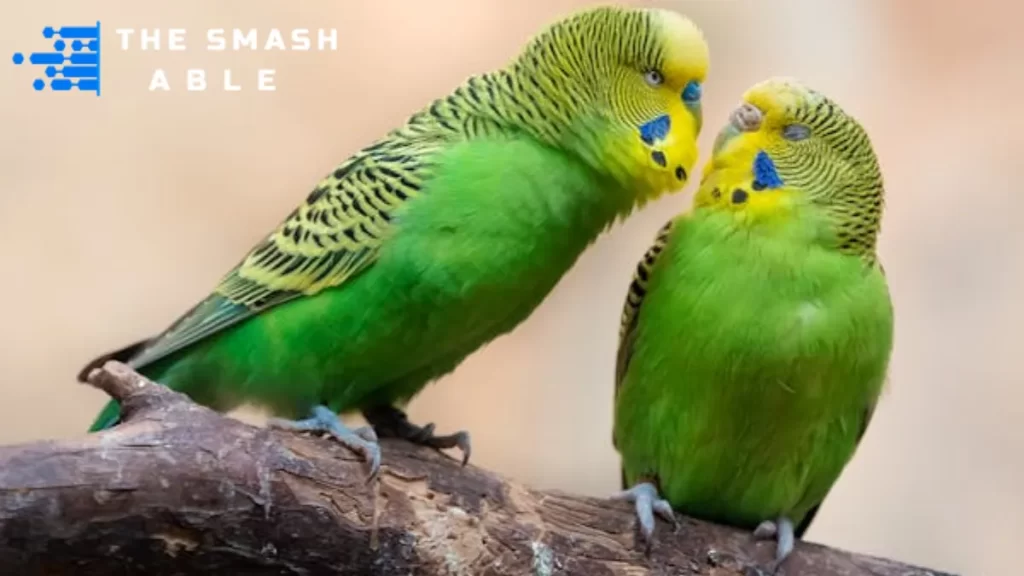
While some feather loss is average, there are times when it’s essential to consult a vet. If your parakeet’s feathers don’t grow back, or if you notice signs like bleeding, bare spots, or constant scratching, it’s best to seek veterinary advice.
Persistent Feather Loss
If feather loss continues beyond the molting season, this could indicate an underlying issue. A veterinarian can identify and treat any health problems.
Other Health Symptoms
If you notice changes in your parakeet’s behavior, such as reduced appetite, lethargy, or weight loss, these may be signs that your bird needs medical attention.
Understanding why my parakeet is losing tail feathers can help you take the proper steps to support your bird’s health. From natural molting to stress and diet, feather loss has many causes, and addressing these factors can lead to healthier, happier parakeets. By ensuring a balanced diet, a calm environment, and regular vet checkups, you’re providing the best care for your feathered friend.

